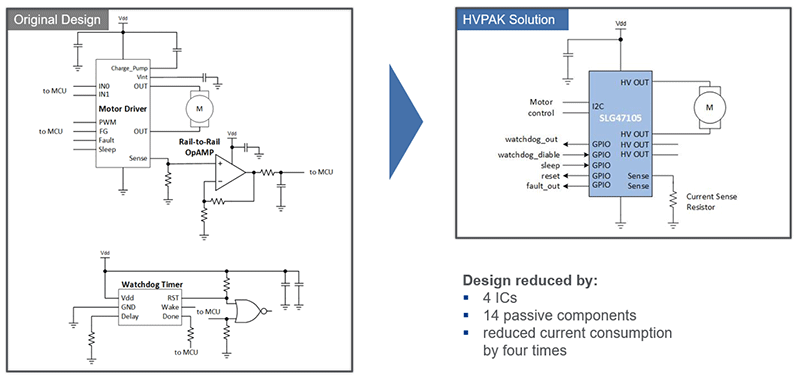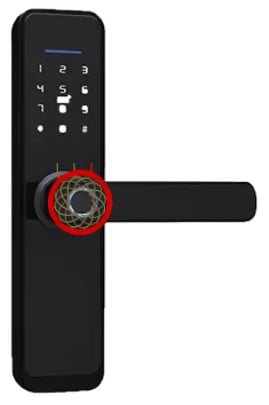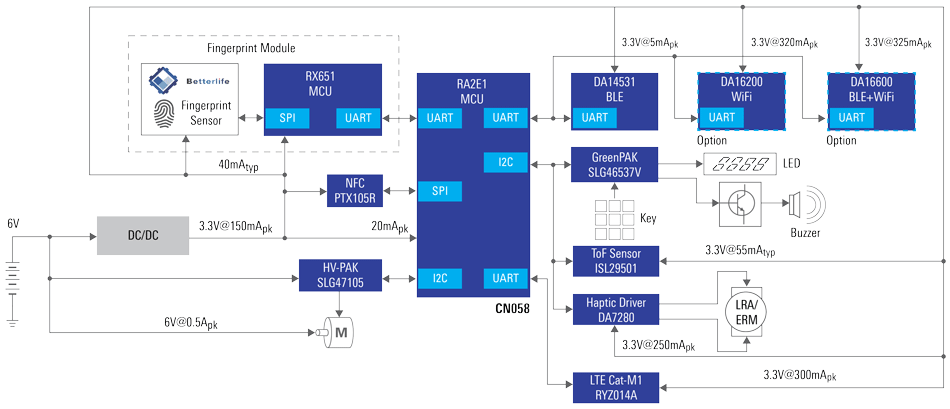In a world where smart locks are becoming more popular for their convenience and security benefits, advancements in the smart home industry are driving their rise. Among the trends of increasing demand for innovative features, heightened security concerns, and seamless integration with other smart home devices, the semiconductor industry plays a crucial role and offers a variety of products for smart locks. Motor and solenoid drivers comprise vital elements, serving as the heart of the device as it locks and unlocks the door. Connectivity features ensure seamless communication between the smart lock and other devices in the home automation ecosystem, and inductive position sensors enhance reliability and safety in lock and door handle detection.
In this blog, we’ll explore how Renesas' semiconductor solutions are transforming smart locks and tackling the key challenges, empowering smart lock manufacturers to create products that exceed the expectations of modern homeowners.
Renesas Connectivity for Seamless Integration and Performance Leadership
One of the primary concerns for manufacturers is power efficiency and seamless integration, particularly in battery-operated smart locks where longevity is crucial. Renesas offers a range of connectivity solutions tailored specifically for smart locks, ensuring seamless integration with existing systems while delivering unparalleled performance. Across its broad portfolio of products covering multiple wireless connectivity technologies, Renesas connectivity solutions ensure that customers’ connectivity designs cooperate seamlessly. For instance, NFC and Bluetooth® products can be designed to work together to support simple touch-to-pair functionality. Renesas Wi-Fi chips fully support the Matter protocol for seamless interoperability of devices in the smart home.
The ultra-low power Wi-Fi system-on-chip (SoC), exemplified by the DA16200 system-on-chip, stands out as a beacon of innovation in the field. Renesas deploys VirtualZero™ Wi-Fi technology which provides the longest battery run-time for power-constrained Wi-Fi-connected devices such as smart door locks. A broad range of Bluetooth Low Energy chips and modules enable us to take advantage of the power-saving capabilities of the latest versions of the Bluetooth specifications. Furthermore, Renesas' DA16600, a module that integrates Wi-Fi and Bluetooth in a single package, simplifies system design by reducing component count and enhancing overall efficiency.
Security is another critical aspect of smart lock systems as consumers prioritize the protection of their homes and properties. Renesas addresses this concern with advanced security features embedded within its connectivity solutions. The DA16200 Wi-Fi SoC, for instance, supports a wide set of security functions, including hardware cryptography, TLS, and WPA3 Wi-Fi security, ensuring robust protection against cyber threats and unauthorized access. Similarly, the PTX105R NFC reader IC boasts best-in-class RF performance and Renesas Direct Antenna Connection (DiRAC®) technology, offering reliable authentication for smart locks and access control systems, even in demanding environments.
Renesas HVPAK Programmable Motor/Solenoid Driver - Fully Customizable Power Saving Solution
The general practice for the motor/solenoid control in smart locks is to use a simple driver; however, it can be done in a sophisticated way. The HVPAK family of motor drivers integrates multiple components to create a custom and secure solution. HVPAK reduces current consumption to ensure extended operation on a single battery, reduces the bill of materials (BOM), and implements more extraordinary custom features not yet known in the market. HVPAK has high-voltage H-/Half-bridge functionality with up to 26.4V and 3A per output, so there is no need for extra components to drive power-hungry loads.

Figure 1. HVPAK reduces solution size and power consumption compared to mainstream design
The designer can customize the HVPAK to control the lock mechanism and program it to detect when the door is open or closed. HVPAK allows integration with the connectivity part through several digital and analog IOs. It is also possible to control LEDs, drive buzzers, communicate with sensors, add a watchdog, and change or add protections, or other valuable features. Both HVPAKs are packaged in a tiny leadless 2mm x 3mm QFN package, reducing the size and cost of your smart lock design.
The other major benefit of battery-operated devices like smart locks is the extremely low quiescent current of the HVPAK of 50nA, which ensures years of operation. HVPAK allows monitoring the current with a programmable threshold. It means if the motor is blocked or the deadbolt is stuck, HVPAK quickly identifies such situations and, again, avoids energy waste. To get the most out of the battery before the UVLO is triggered, you can easily add a PWM soft start. This will reduce the current when the motor is started and avoid battery voltage dipping too low when the battery already has a low charge. Accordingly, the smart lock will work longer on the battery before replacing or charging. HVPAK provides built-in voltage references, highly customizable digital macrocells, and clock sources. In addition, both HVPAKs have analog comparators that can be used to detect changes in current or voltage for undervoltage, overcurrent, and short-circuit protection.
Download our free GUI-based Go Configure™ Software Hub to create your smart lock design in minutes – example projects are also available.
HVPAKs offer a high level of flexibility, programmability, and integration, which makes them especially well-suited for smart lock applications. None or a few external components make HVPAKs an attractive choice for smart lock manufacturers. The smart lock industry continues to grow, so don't miss your chance to improve safety and convenience with HVPAK!
Enhancing Smart Lock Security with Inductive Position Sensors

Figure 2. Possible sensor location for door handle position measurement
Inductive position sensors offer significant advantages for smart locks, particularly in enhancing reliability and safety in lock and door handle detection. With a customizable sensing element on a printed circuit board (PCB), these sensors provide tailored detection suited to the specific characteristics of each lock mechanism.
One notable benefit of inductive position sensors is their ability to operate without the need for magnets. This simplifies installation and maintenance while ensuring consistent and reliable performance over time. Whether it's linear or rotative sensing, these sensors deliver high-performance capabilities, guaranteeing accurate feedback.
Moreover, despite their advanced features, inductive sensors remain cost-effective, making them a practical choice for various smart lock applications.
Additionally, these sensors are designed to withstand harsh environmental conditions, including temperature extremes and moisture, ensuring optimal functionality in challenging surroundings. Overall, the integration of inductive position sensors in smart locks provides a robust solution for enhancing reliability and safety in lock and door handle detection.
Blueprint for Success: Winning Combinations Integrate Compatible Products for Smart Lock
Renesas solutions can simplify the product development process and accelerate time-to-market. Get started by using one of our Winning Combinations. The smart door lock solution features fingerprint control and Wi-Fi networking provided by an ultra-low power Wi-Fi SoC. The design supports fingerprint recognition, as well as on-site and remote lock open/close. The solution uses the Amazon Web Services (AWS) IoT cloud service to operate a door and monitor its status: opened or closed. Users can control these operations using a mobile app.
To dive deeper into smart lock solutions from Renesas, please visit Smart Lock with Super-Low Power Wi-Fi and Bluetooth Low Energy and Wireless Smart Door Lock.

Figure 3. Smart Lock with Super Low Power Wi-Fi and Bluetooth Low Energy Block Diagram
To learn more about Renesas technologies, visit our Wireless Connectivity, HVPAK, and Inductive Position Sensor (IPS) IC product pages.



